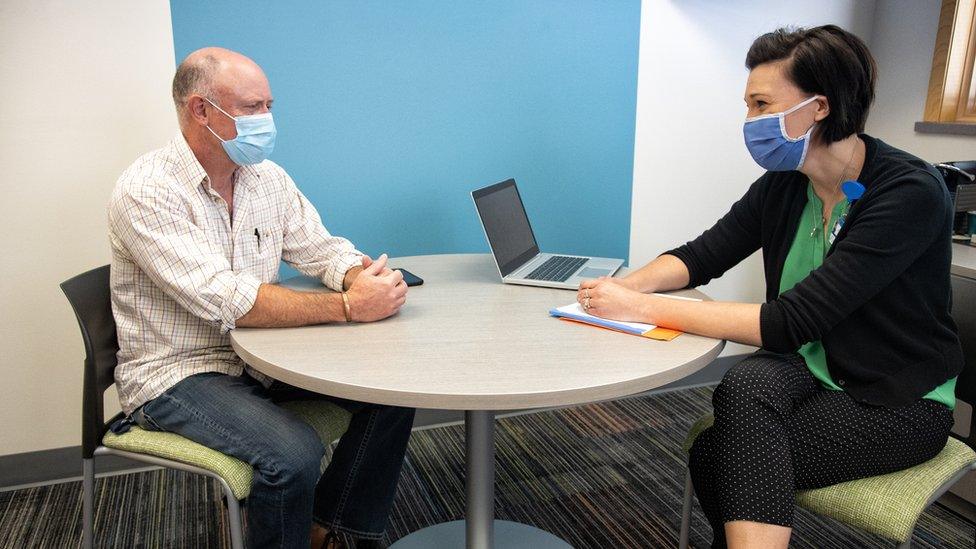Covid and mental health: 'People don't feel entitled to help'
- Published
Rainbow says Carl always had a smile for everyone, even when he was at his "lowest ebb"
People struggling with their mental health during the pandemic "do not feel entitled to seek help" while others suffer with Covid-19, a charity said.
A Mind Cymru survey of 900 people found a third of adults and a quarter of young people fail to get help because they did not think they deserved it.
The charity said conditions had become "more acute but also more complex".
A woman from Newport has urged people to ask for help after the father of her children took his own life in July.
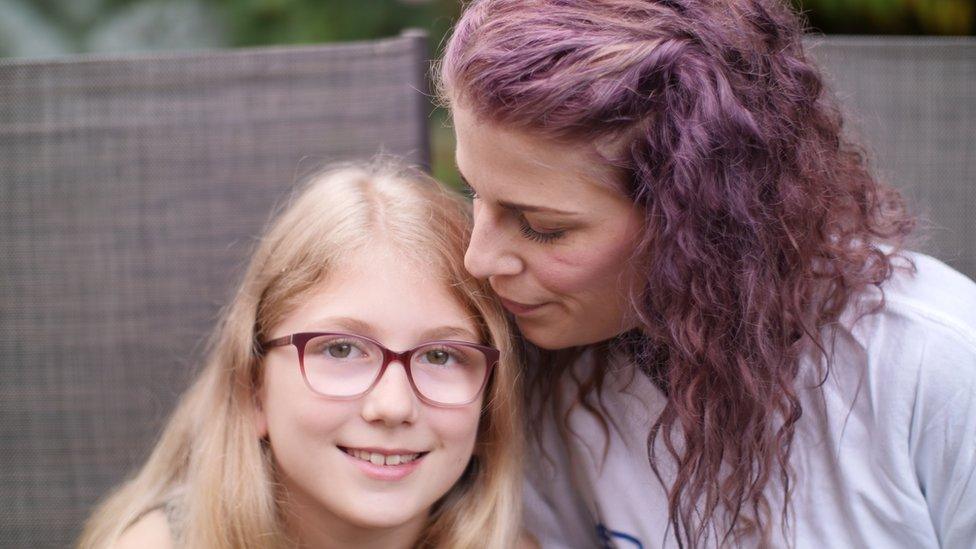
Rainbow, pictured with daughter Holli, says Carl "struggled to talk"
Carl Morgan took his own life, aged 43, and Rainbow Chicharro said he "struggled to talk".
She added: "You would never have known Carl was suffering on the inside because even when he was at his lowest ebb, he would always have a smile for everybody.
"He would always put everybody else first before himself. His energy was infectious and whenever we had a gathering he was always the loudest and brightest of the bunch. It's really sad."
Their eight-year-old daughter Holli has raised thousands of pounds for charity by having her hair cut off on the date of her father's birthday.
She said her favourite things to do with her father were "game nights, pizza nights and all the bike rides we did because I got to spend time with my dad".
"It would always make him smile and we would always have so much fun," said Holli.
She explained she wants to raise awareness so people "don't have to suffer anymore".
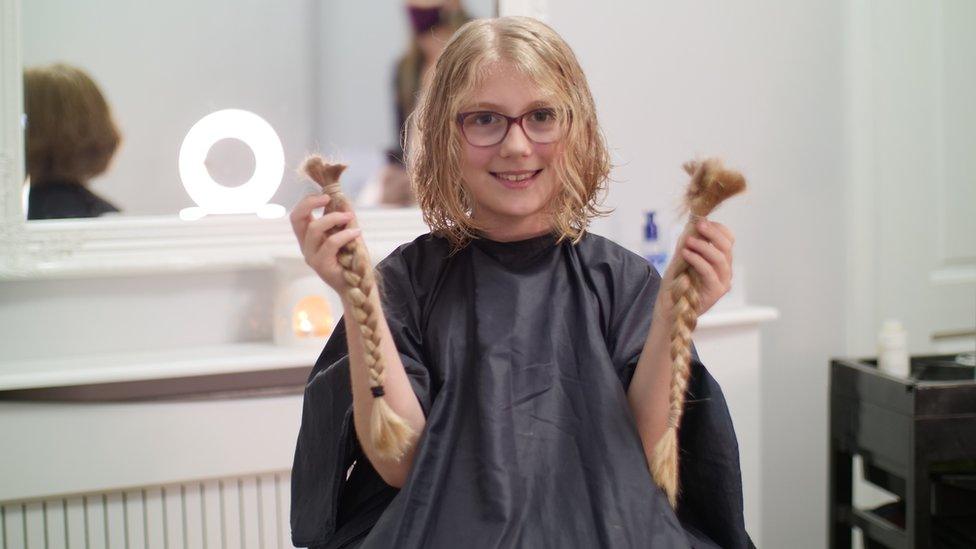
Holli said she enjoyed "game nights, pizza nights and all the bike rides we did" with her dad
Mental health charity Mind Cymru has warned of the effects of the pandemic on people's mental health and on people's willingness to seek help.
"People haven't been seeking help for a number of reasons, fear of contracting the virus, but also maybe not feeling they deserve help at that time," said Simon Jones, head of policy at Mind Cymru.
"You may feel that how you're feeling emotionally isn't as important as the physical challenges that people are facing, but we know in the long run it's really important that people talk, and that people still seek help, because your mental health is as important as your physical health."
Figures published earlier in the year suggested twice as many adults had reported symptoms of depression compared with the same time last year.
A survey of more than 3,500 adults found almost one in five appeared to have depressive symptoms compared with just under one in ten before the pandemic.
If you have been affected by the issues raised in this article, visit BBC Action Line for information on support available to you.
- Published9 November 2020

- Published9 October 2020
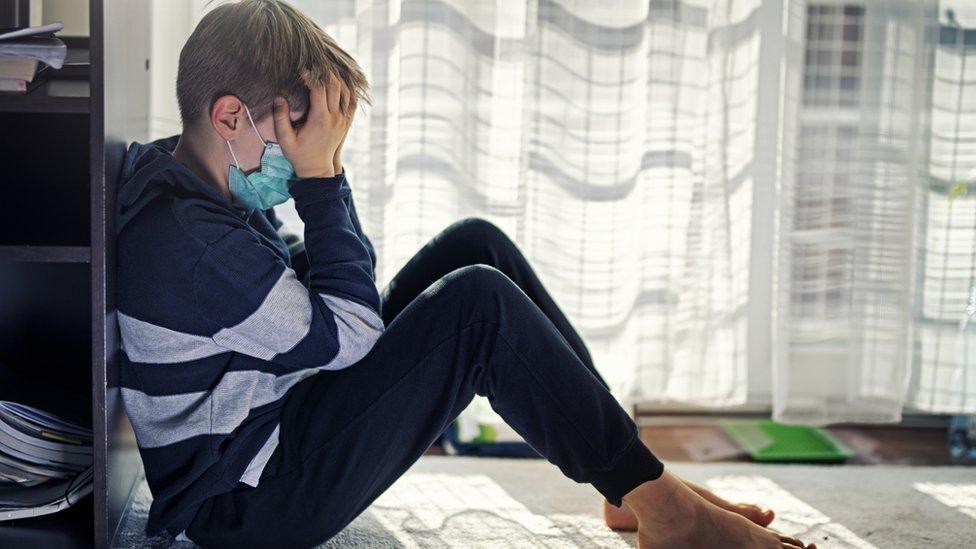
- Published18 August 2020
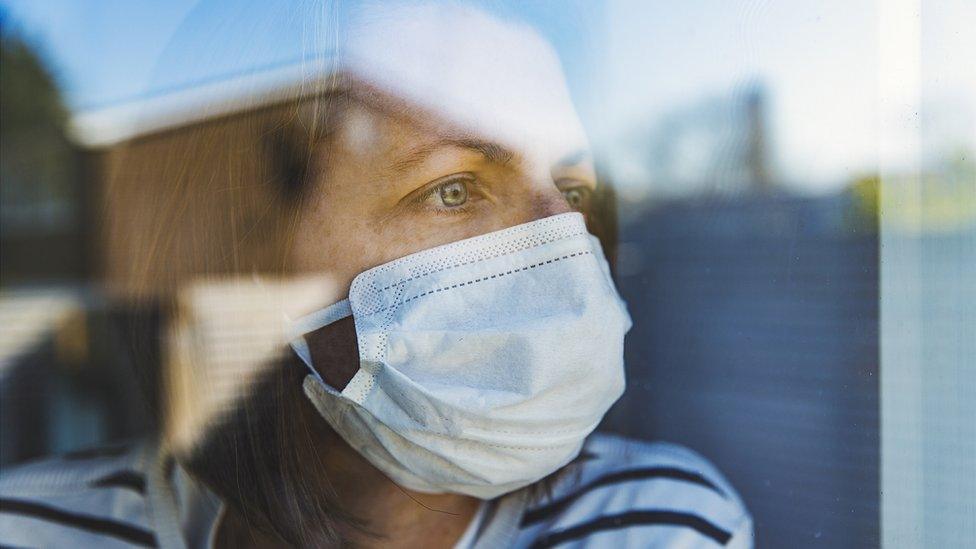
- Published12 August 2020
